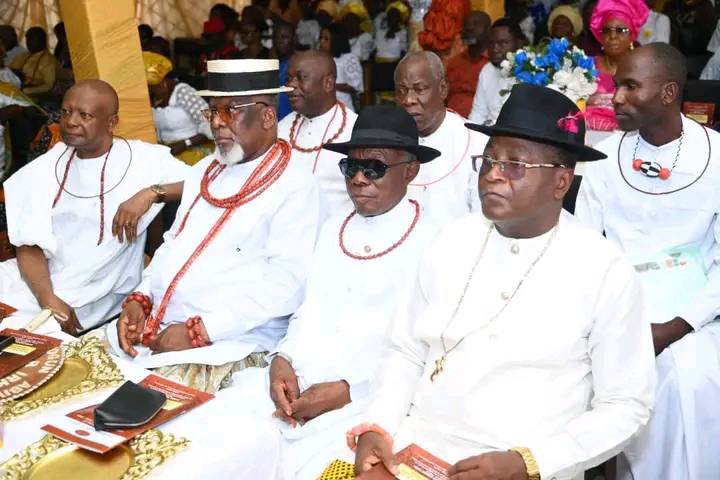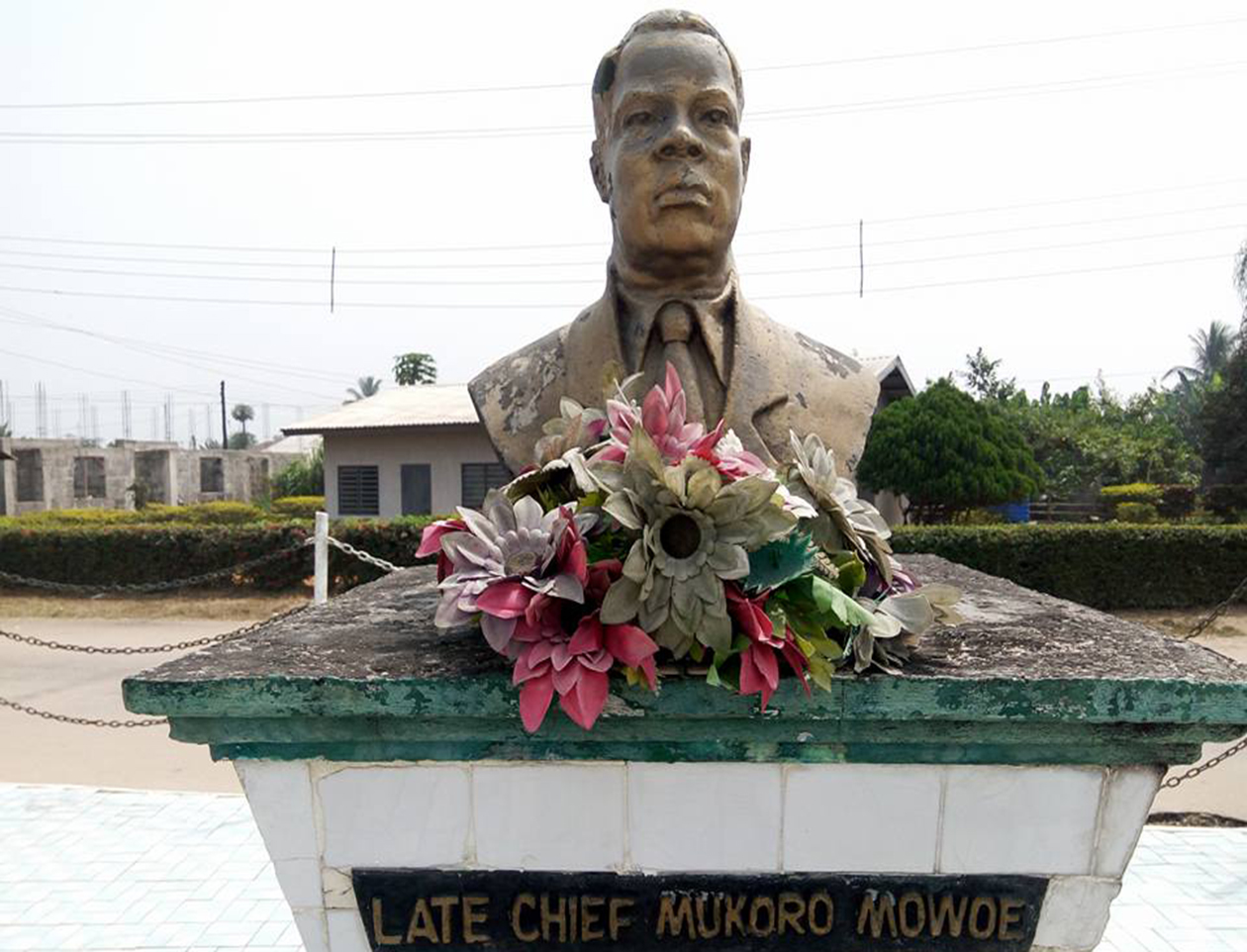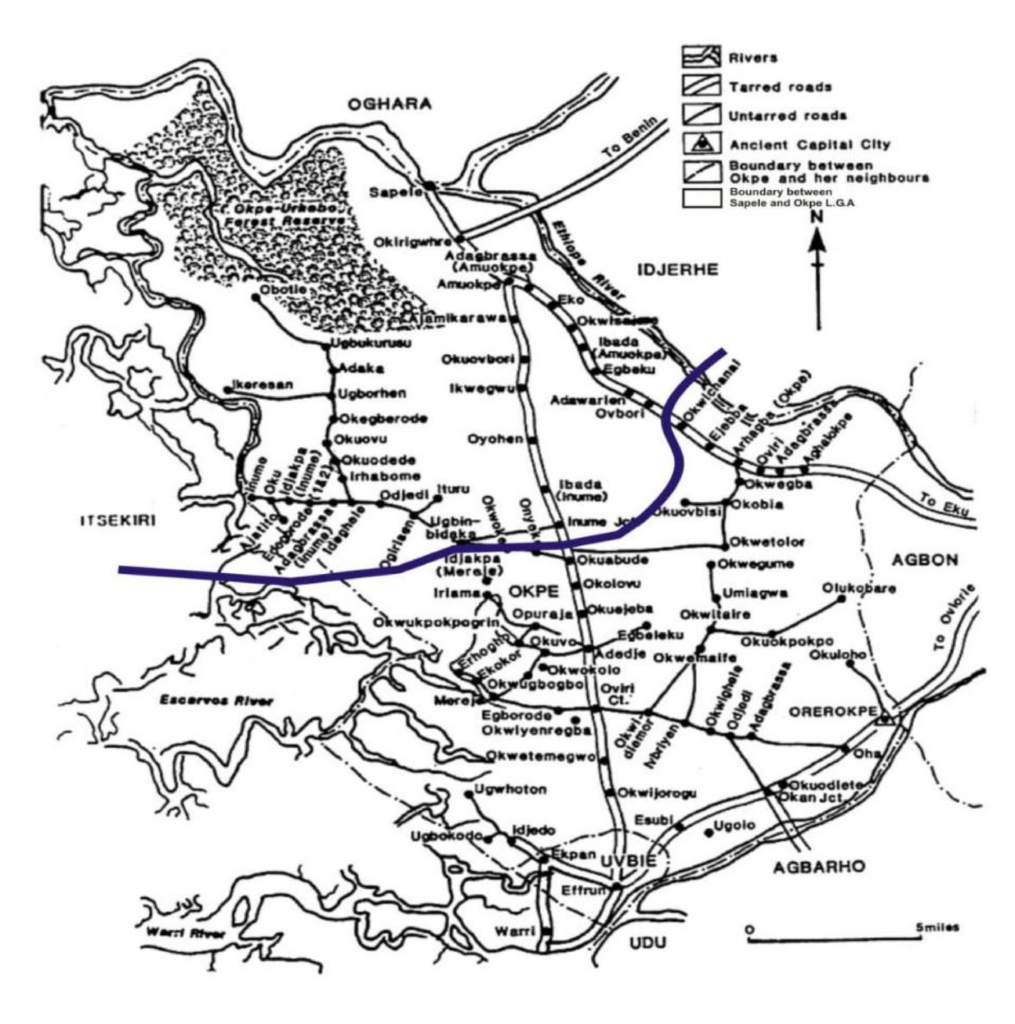
Explore the rich history of the Ughievwen Kingdom and its deep ties to the Eghwu Kingdom and their shared ancestry of the Urhobo People.
The Ughievwen Kingdom has a complex and diverse history that is closely tied to the Eghwu Kingdom. These two kingdoms share a deep bond stemming from a shared ancestry
The founder of the Ughievwen Kingdom is believed to be a direct descendant of the same father. This father is also the founder of the Eghwu Kingdom. This creates a familial link that has endured through the ages.
The origins of the Ughievwen Kingdom begin with a notable figure, Óborerugba. His influential son Ifiegba was also part of its history. They were originally from Udo. Udo was an ancestral home established by Udo, son of Akan of the Urhobo people. The area remained under their control until Ogiso Odoligie of the Igodomigodo Kingdom overtook it. Óborerugba and his son Ifiegba departed Udo during the conflict. The conflict was from Akpanigiakon of Udo and ended when Oba Oguola defe@t3d his foe. This occurred at the b@ttle of Urhezen around 1285AD.
Ifiegba and his father embarked on a journey. This journey led them to settle among the mein clans of the Ijaw people. There, he became a distinguished and respected leader. The Ijaw community affectionately called him Dirimiogbia, reflecting his esteemed position. Ifiegba migrated and established his lineage among the Ijaw. This event marked the beginning of a rich cultural tapestry. It evolved into the Ughievwen clan.
After Ifiegba’s passing, his legacy was carried on by his four sons:
Imeyi, Eghwu, Óbo, and Ughievwen. Each son played a crucial role in preserving their father’s heritage, and in a gesture of respect and unity, the brothers established a festival celebrated biennially. During one notable festival, a significant event occurred with lasting effects on the family. Eghwu’s son(Orere), showcasing his skill, successfully hunted an antelope, a feat celebrated by all. However, tensions arose when Imeyi, the firstborn with certain privileges, requested the antelope’s head. This request, rooted in tradition, symbolized his status within the family. The refusal of this request led to a c1vil w@r between factions led by Imeyi and Eghwu, highlighting the complexities of family relationships and the fragile nature of unity among the brothers.
After the confl1ct, Eghwu and Ughievwen relocated to the Patani territory. They were both descendants of the same mother. Eventually, they moved to their current locations. This move was not just physical but strategic, laying the foundation for the Ughievwen Kingdom.
Around 1370AD, Ughievwen established the Ughievwen clan, marking a significant milestone in the region’s history. Ughievwen’s lineage continued through his children: Erhohwe, Owhahwa, Ukpedi, and Uphurie, who later formed sub-clans under Ughiewen.
The eldest son is Orhowhe.
Orhowhe’s first child, Otitiri, founded Iwhrekan near Otughievwen. Otitiri, also known as Iwhrekan, was the eldest grandchild of Ughievwen. Iwhrekan is named after bitter kola trees. These trees are called ‘EKAN’ in the Urhobo language. The name is due to the abundance of the crop in the area. Otitiri named the place Iwhrekan, meaning “town of ‘Ekan’ trees.”Iwhrekan holds significant importance in Ughievwen customs and traditional rites.
The second child of Ughievwen is Owawha.The third child is Ukpedi, and the fourth is Uhurie.
I am Obruke Orodje, popularly known as Urhobo People right here. Idu Igodomigodo on You.Tube. I will be preparing a complete video of Ughievwen history only on You.Tube .
Discover more from Urhobo Daily
Subscribe to get the latest posts sent to your email.










Leave a Reply